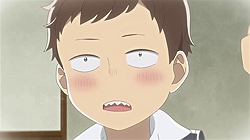 |
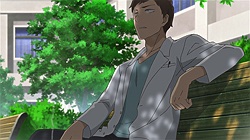 |
 |
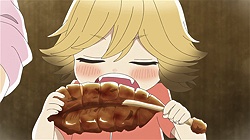 |
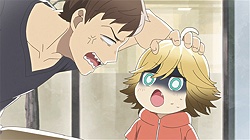 |
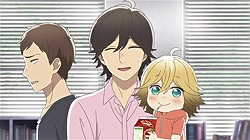 |
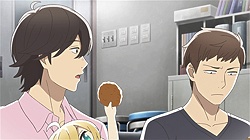 |
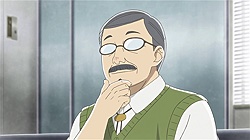 |
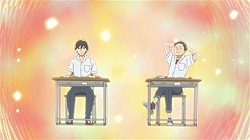 |
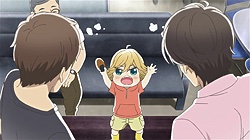 |
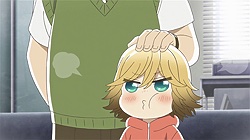 |
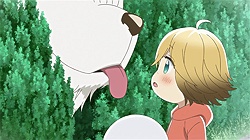 |
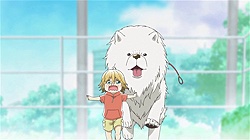 |
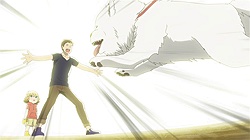 |
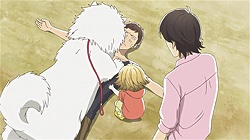 |
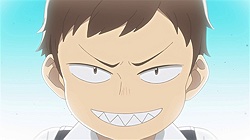 |
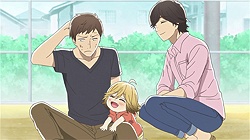 |
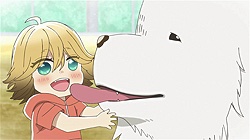 |
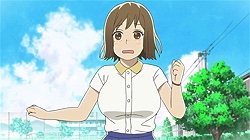 |
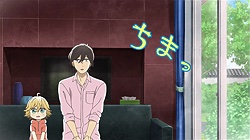 |
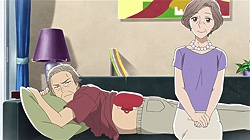 |
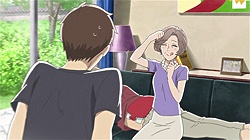 |
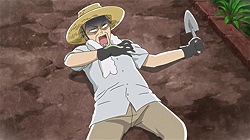 |
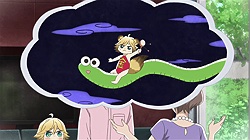 |
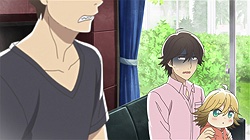 |
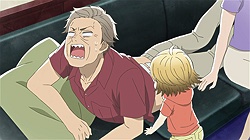 |
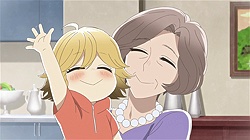 |
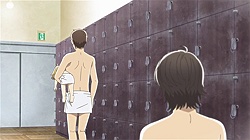 |
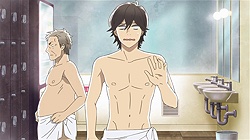 |
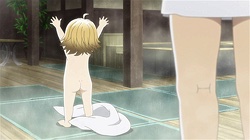 |
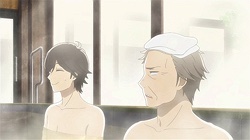 |
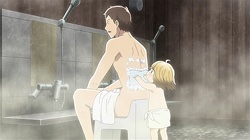 |
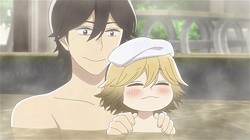 |
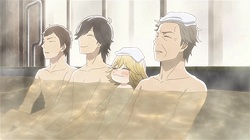 |
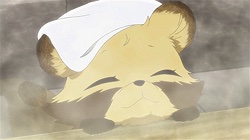 |
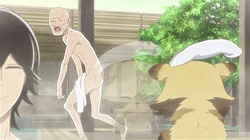 |
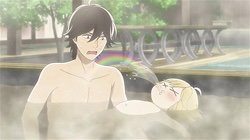 |
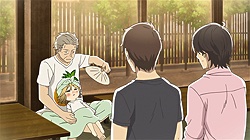 |
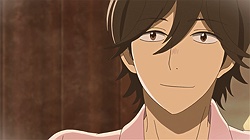 |
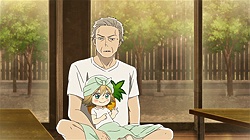 |
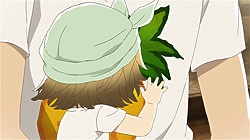 |
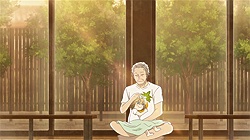 |
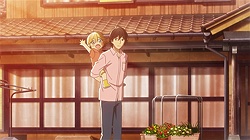 |
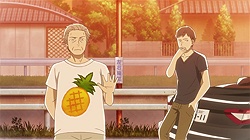 |
 |
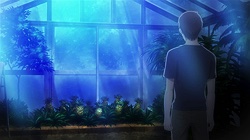 |
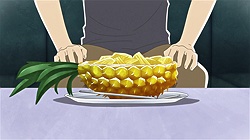 |
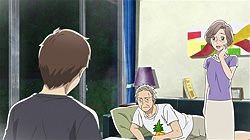 |
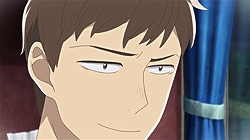 |
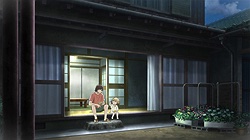 |
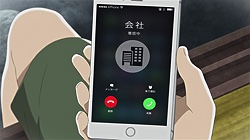 |
「骨付鳥」 (Honetsukidori)
“Chicken on the Bone”
Setting aside adaptations of material I’ve read, great anime tend to follow a somewhat repeating pattern for me. There’s a certain point where the stakes go up, and you realize that you’re looking at something with aspirations to real greatness and not just a really good series. That’s where we are with Udon no Kuni no Kiniro Kemari, which is continuing to impress me on more levels than I have time to recount. It’s a show that builds slowly, but then, so does a locomotive’s speed. Some anime are sports cars (Nakajima would probably like those) but Udon no Kuni is more of a freight train.
Simply put, this show is emotionally on-point in a way I’ve found very, very few anime to achieve over the years. I have no idea if the mangaka is a man or a woman – indeed, the given name Nodoka would more traditionally be a girl’s name – but to an extent it feels as if we’re dealing with a comprehensive and profound exploration of the male experience. From early childhood to old age, it’s all been represented in the first five episodes, and so has the complicated way men and boys have of dealing with each other. If indeed Shinomaru-sensei is a woman, she’s a woman of remarkable insight into the male psyche.
As you would expect, the father-son dynamic is very much at the heart of Udon no Kuni, and it manifests itself in many different ways. Watching this episode reminded me of an interview I read earlier this week, featuring Hosoda Mamoru and the superb live-action director Kore-eda Hirokazu. Both men noted that they never once had dinner with their father, and that to the end, there was never really an understanding between them. Neither father was a criminal or abusive, or left home – they simply never came to know their son. It’s always complicated with fathers and sons, but this seems especially true in Japan, where traditionally men work 60-80 hour weeks and aren’t expected to spend much time with their children. Both Kore-eda and Hosoda were open about the fact that their work (nearly always centered around the family and usually featuring absent fathers) was deeply informed by this experience, and that seems very much the case with Udon no Kuni too.
Poko’s role in the story is taking shape along the lines explored last week. Surely it’s not coincidental that the Yashima Tanuki are the Gods of family happiness, and Poko is very much the catalyst in changing all the relationships he’s become involved in. There’a a certain metaphorical note here, of course, as in the best instances children can have that impact in real life (though sadly through no fault of their own they can often make troubled relationships worse). What Poko seems to be doing is reawakening emotions that had been beaten down by time and separation – he’s done this with Souta, Rinko, Nakajima Shinobu – and now Nakajima’s dad, too. How much of this is consciously part of his role as a trickster and how much is simply a function of his essential goodness (and trickster or no, I firmly believe he possesses that quality) we don’t yet know, and may not every find out in the anime version.
I love the way Nakajima and Poko are bonding – that extraneous phone call, the washing session at the onsen – and the way Poko has appointed himself the sheriff of good relationships. Like all small children he’s upset by fighting among adults he loves, but it seems especially a personal affront to Poko. As Souta is confronting the struggle to re-connect with his old home without cutting ties with his new one in Tokyo, Shinobu’s life is consumed with his troubled relationship with his father. The crux of this is what Souta tells him – Shinobu is lucky because he has an opportunity that will never again be given to Souta, and he should take advantage of that while he has the chance. But of course, that’s easier said than done.
Like all the others in the cast, the Nakajima parents are extremely realistic characters. Shinobu’s mom is a master manipulator, a skill she’s clearly had to learn in order to manage the stubborn men in her family. The father is a proud and judgemental patriarch, a man who achieved a place of great respect in the community and doesn’t see the need to lower himself to earning respect he thinks is owed him (he reminds me very much of the father in Kore-eda’s masterpiece Still Walking). I don’t think it escapes anyone’s awareness that the reason Shinobu chose to be a doctor was not to follow in his father’s footsteps (like Souta he’d always resolved not to) but because of Souta’s injury, and the way his father was able to help him. I don’t sense that Nakajima-sensei resents Souta for this – he may even feel grateful that Souta accomplished something he couldn’t – but it remains a blow to his pride as a father and a man.
What role does Nakajima-sensei need Poko to play? To remind him of the feelings he had for his son when he was a little boy who adored and worshiped him. And this is exactly what happens at the (gorgeous) onsen – in reality the stunning modern Busshozan designed by renowned architect Oka Shuhei (it still amazes me that you can visit a place like this in Japan for less than $10). I’m again fascinated by the question of how much self-awareness the tanuki Poko has here, but irrespective of that the connection between he and the old man is so beautifully unforced and genuine – a reminder that it’s often so much easier for men to bond with their grandchildren than their own children.
As is so often the case, the worry with Udon no Kuni at this point is mostly where the anime will leave things. A seinen adaptation of an ongoing adaptation will inevitably end in the middle of the story, and there are so many fascinating threads spooling out here that I long to see tied up. In addition to everything else there’s the possibility of romance between Souta and the young woman we met in the premiere, Fujiyama Sae – played by Hanazawa Kana – and our first visit to Tokyo and Souta’s job. What’s not in question is the brilliance of this adaptation – it’s a magnificent piece of work that continues to improve every week, displaying some of the most sensitive and incisive writing anime has seen in years.
Preview
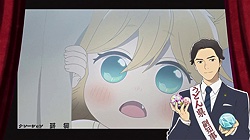 |
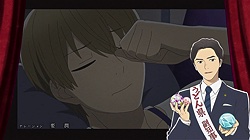 |
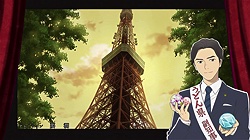 |
Omake
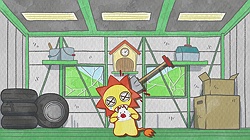 |
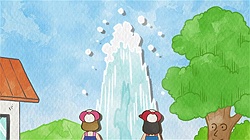 |
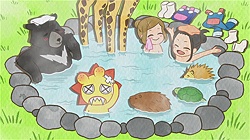 |

I told u so! /reasons why Nakajima became a doctor =)
I love this show, as you mentioned, awfully realistic and straight play into our emotions. I love Nakajima’s shark teeth so much =) Is he related to Rn from Free!!? Ha!
Thanks for your review
M.
Obviously, he got those teeth from his Dad!